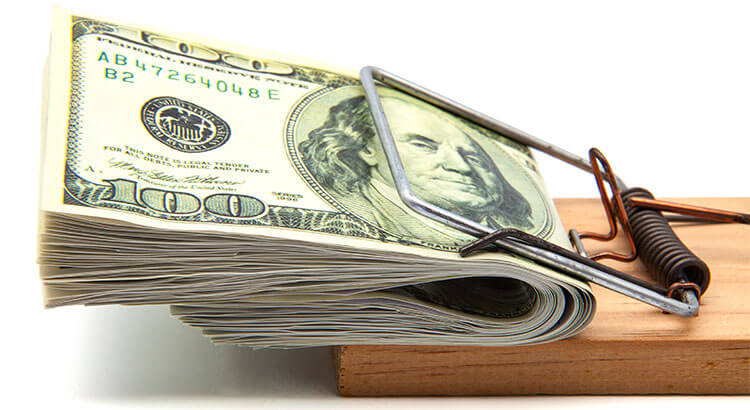Rents Are on the Rise: Don’t Get Caught in the Rental Trap!

There are many benefits to homeownership. One of the top benefits is protecting yourself from rising rents, by locking in your housing cost for the life of your mortgage.
Don’t Become Trapped
A recent article by Apartment List addressed rising rents by stating:
“Rents are up 2.7% year-over-year at the national level. Year-over-year growth continues to fall between the 2.1% rate from this time last year and the 3.4% growth rate from October 2015.”
The article continues explaining that:
“Despite the seasonal slowdown, rents are still up year-over-year in 89 of the 100 largest cities.”
Additionally, the Urban Institute revealed that,
“Over a quarter of renters, or 11.1 million households, are severely cost burdened, spending at least half their income on rental housing.”
These households struggle to save for a rainy day and pay other bills, including groceries and healthcare.
It’s Cheaper to Buy Than Rent
As we have previously mentioned, the results of the latest Rent vs. Buy Report from Trulia shows that homeownership remains cheaper than renting with a traditional 30-year fixed rate mortgage in the 100 largest metro areas in the United States.
The updated numbers show that the range is an average of 6.5% less expensive in San Jose (CA), all the way up to 57% less expensive in Detroit (MI) and 37.4% nationwide.
Know Your Options
Perhaps you have already saved enough to buy your first home. A nationwide survey of about 24,000 renters found that 80% of millennial renters plan to eventually buy a house, but 72% cite affordability as their primary obstacle. Aside from affordability, one in three millennial renters have concerns about their credit scores, and another 53% said that a down payment is an obstacle.
Many first-time homebuyers who believe that they need a large down payment may be holding themselves back from their dream homes. As we have reported before, in many areas of the country, a first-time home buyer can save for a 3% payment in less than two years. You may have already saved enough!
Bottom Line
Don’t get caught in the trap that so many renters are currently in. If you are ready and willing to buy a home, find out if you are able. Let’s get together to determine if you qualify for a mortgage now!
To view original article, please visit Keeping Current Matters.
Are Higher Mortgage Rates Here To Stay?
Experts typically recommend focusing your search on the right home purchase — not the interest rate environment.
Key Skills You Need Your Listing Agent To Have
A listing agent, also known as a seller’s agent, helps market and sell your house while advocating for you every step of the way.
Are You a Homebuyer Worried About Climate Risks?
Homebuyers are interested in finding out if the house they want will be exposed to things like floods, extreme heat, and wildfires.
Home Prices Are Not Falling
Don’t fall for the negative headlines and become part of this statistic. Remember, data from a number of sources shows home prices aren’t falling anymore.
Unpacking the Long-Term Benefits of Homeownership
Higher mortgage rates, rising home prices, and ongoing affordability concerns may make you wonder if you should buy a home right now.
Why Your House Didn’t Sell
For insight on why your home didn’t sell, rely on a trusted real estate agent. A great agent will offer expert advice on relisting your house with effective strategies to get it sold.
The Return of Normal Seasonality for Home Price Appreciation
Don’t let the terminology confuse you or let any misleading headlines cause any unnecessary fear.
Beginning with Pre-Approval
Pre-approval gives you critical information about the homebuying process that’ll help you understand how much you may be able to borrow.
Your Home Equity Can Offset Affordability Challenges
Some homeowners are reluctant to sell and take on a higher mortgage rate on their next home, but what about home equity?
Are More Homes Coming onto the Market?
If you’ve been putting off selling your house, now may be the sweet spot to make your move. The longer you wait, the more competition you’ll have.









